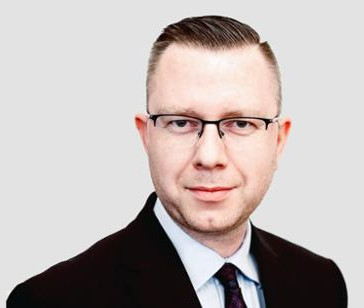 30 years of the German-Polish Neighbourhood Treaty || Interview with Minister Krzysztof Kubów - Secretary of State, Head of the Political Office of the Prime Minister, Member of the Council of the Krzyżowa Foundation
30 years of the German-Polish Neighbourhood Treaty || Interview with Minister Krzysztof Kubów - Secretary of State, Head of the Political Office of the Prime Minister, Member of the Council of the Krzyżowa Foundation
This year, we are celebrating the 30th anniversary of the signing of the Treaty of Good Neighbourship. What meaning, in your opinion did this agreement have for the relations between both countries in that historic moment?
The agreement, in my opinion had, above all, a stabilising effect on the Polish-German relations. After some difficult and painful years, which were full of mutual distrust, it marked a new beginning for the course and pace of development of mutual relations. In accordance with its content and message, not only did we become neighbours, but also partners.
30 years have passed. How do you evaluate the effects of the treaty from this perspective? To what extent, have its objectives been achieved?
I assume that after 30 years, the clearly visible effects could well positively surprise the signatories of the agreement themselves. In many areas, cooperation is going well, also thanks to and because of the European integration. There is obviously more room for further development and improvement in certain respects, but the agreement itself starts a process without setting any specific date for its completion, therefore, in every area we can, and even should, seek solutions that improve the current situation, even though it is indeed very good. For the same reason I can say that the objectives of the agreement are certainly being met and may this very good process continue as long as possible, though, obviously, what is worth emphasising, is that some provisions of the agreement have already been implemented.
30 years after the treaty, we live in a completely different historical context. Poland and Germany are part of the European community. How do you perceive the role of the “Krzyżowa” Foundation and the International Youth Meeting Centre in the contemporary context?
I think that together we understand European integration as an ongoing and continuous process. Therefore, we will still and continuously need places for dialogue, where solutions based on Christian values, which constitute the foundation of Europe will be sought. Owing to these, we will still be able to build a lasting European agreement with a mutual understanding of the sensitive issues and respect for all the parties. It is particularly important that this bridge is built between the young people in order to preserve the memory of frequently very painful moments, but, also to continue to create and strengthen the community on the basis of their warnings.
In what areas is the current Polish-German cooperation particularly fruitful?
The first thing that comes to my mind is definitely the trade exchange. The Polish-German economic cooperation is very fruitful. Our economies are closely interlinked. I can see this, for instance, in Lower Silesia, where I come from, and where the scale of German investments is very clearly visible, and the volume of Polish export is growing dynamically. Furthermore, we are also achieving excellent results in scientific and cultural cooperation.
What objectives within the framework of the Polish-German neighbourhood should become priorities for the years to come?
For sure, this will be, above all, a wise and responsible climatic policy, which will be aimed at achievement of climatic neutrality, but with respect for important and sensitive social issues, while maintaining the continued competitiveness of European industry. This was also mentioned by Prime Minister Mateusz Morawiecki during the recent visit of Chancellor Angela Merkel in Warsaw. He also pointed out that we should invest in the development of modern technologies such as artificial intelligence, for example, and it is hard to disagree with him. I, for that matter, also have high hopes and look forward to mutual cooperation with respect to the development of hydrogen technologies.
Interview conducted by the Newsletter Editors for a special issue published as part of the anniversary of the Good Neighbourhood Treaty.



